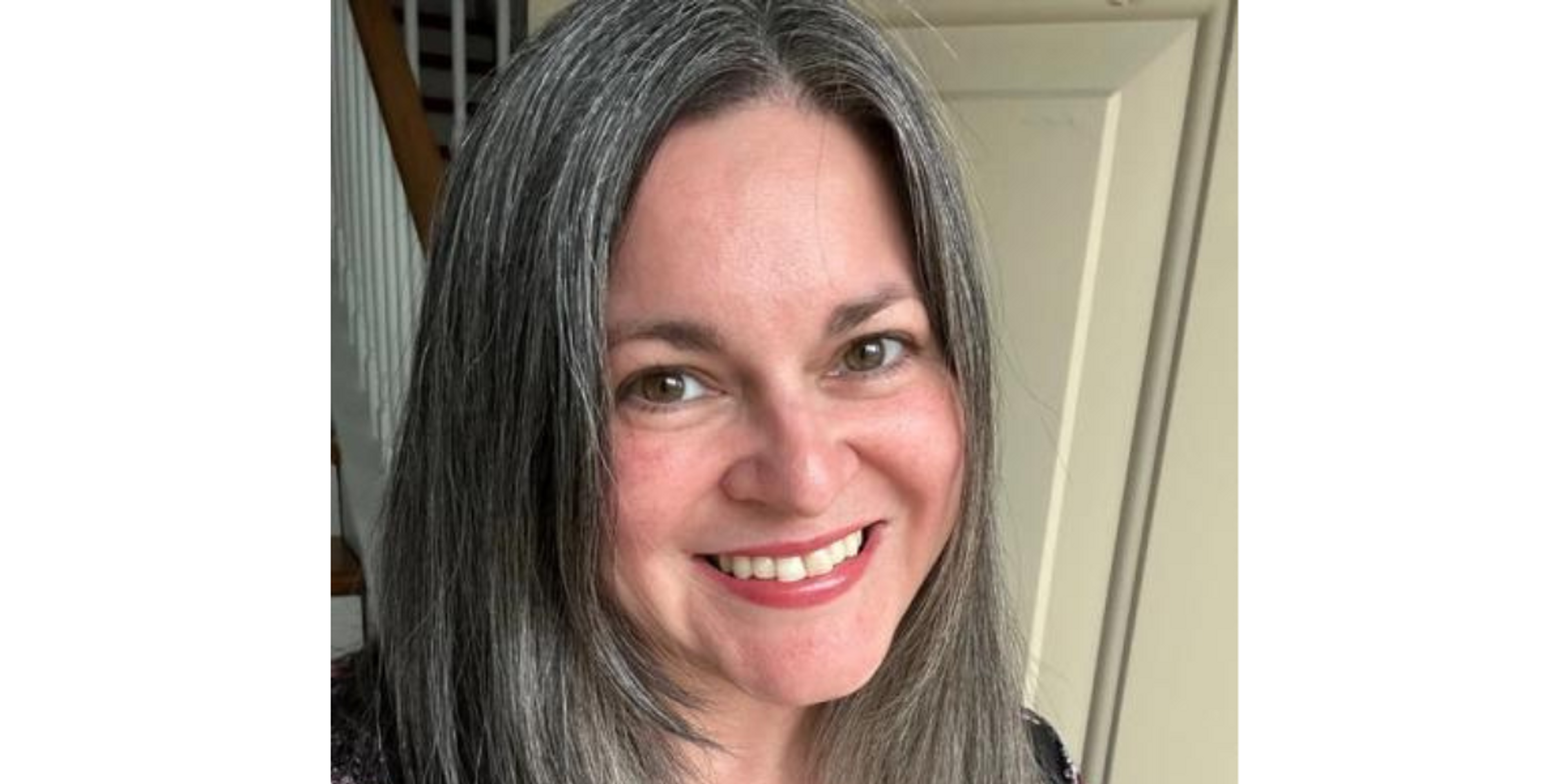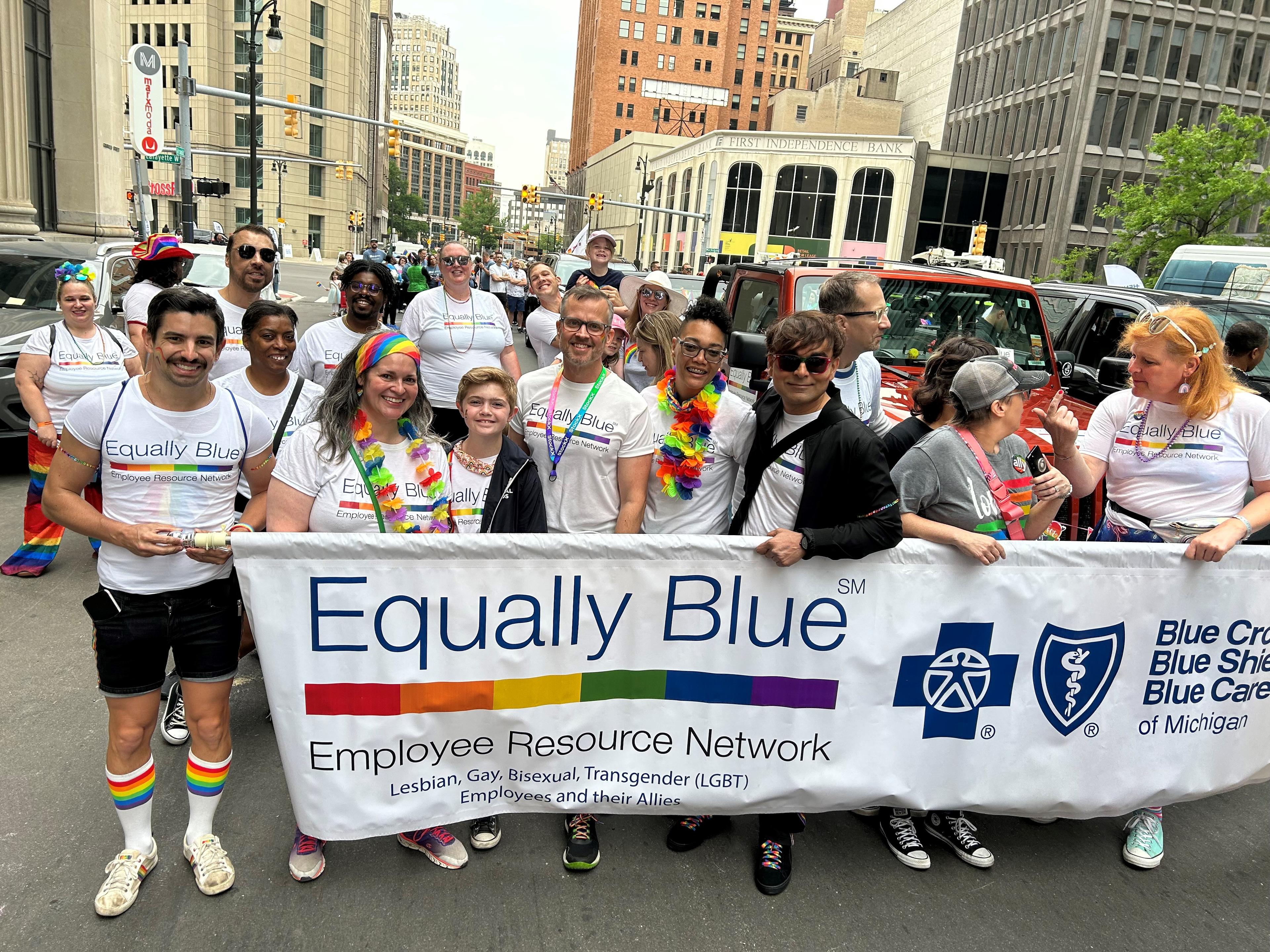Making a Difference: Michigan Woman and LGBTQ+ Ally Opens Up About Her Passion for Advocacy
Jake Newby
| 5 min read

Westland, Michigan’s Dani Shepherd has spent the better part of her life advocating and standing up for people in the LGBTQ+ community. Whether it be at work, at home or in public, it’s become a major part of her identity.
“Being an ally is being there to support and speak up for people,” said Shepherd, a Blue Cross Blue Shield of Michigan (BCBSM) employee. “Whether it’s at work or it’s just like, you’re out in the bathroom and someone is picking on someone whose transgender for being in the bathroom. Even if you don’t know that person, even if it’s just a stranger, being that person that speaks up for them, so they don’t always have to speak up for themselves is immeasurable as far as the impact it can have on people’s lives.”
Shepherd is a former co-chair and current marketing lead of BCBSM’s Equally Blue Employee Resource Network (ERN), a group that supports and increases understanding of the lesbian, gay, bisexual, and transgender community. She also works on the LGBTQ+ Health care Disparities Team.
Shepherd’s son, Finn, is transgender. Her best friend growing up was gay. Acceptance or lack thereof from others can have a profound impact on the mental wellbeing of an LGBTQ+ individual, as Shepherd has seen secondhand during almost every phase of her life. As a result, she wants to do what she can to help people of all sexual orientations and gender identities to feel comfortable in their communities, no matter where they are.
“I was one of the first people my friend came out to. He went through a lot of struggles and now has a lot of acceptance from his family, but it took a long time to get there,” Shepherd said, of her high school best friend. “His friends were his safe space. And years later, I watched even as I had friends at Blue Cross who were kind of hiding who they were and who they were dating. Even sometimes, who they were married to. Hiding these things from their coworkers, because they were not sure they’d be accepted.”
Changing office culture: Steps team leaders, employees can take to be LGBTQ+ allies
Shepherd takes pride in the increased inclusivity she’s seen at work over the course of her 17-year career. When she’s thought about some of the struggles coworkers of hers have faced just to fit in, said she’s been able to boil her feelings down to one notion that she’d like to see reversed.

“It feels like, it’s not fair that just because I date and marry people of the opposite gender that I get to be open about that at work and other people don’t,” Shepherd said. “So, we want to raise awareness and acceptance and educate people.”
When it comes to shifting the culture of any workspace to become more LGBTQ+ friendly, it takes a group of passionate individuals who are willing to increase awareness and push boundaries that others may not recognize are boundaries. A group that is willing to reach out and connect to people of other areas, including higher ups, to say, “this is what is most appropriate, and can we move more in that direction?”
Shepherd added that learning sessions, education and collaboration with human resources and employee benefits departments can all go a long way in shifting company culture. She also offered a couple of courteous measures that team leaders and employees can practice right away to help promote an inclusive workplace:
- Adding pronouns to your email signature: “It sounds silly,” Shepherd said. “But it shows people you’re a safe space. It’s not just for (members of the LGBTQ+ community), it’s for cisgender people, too.” A cisgender person has a gender identity that matches their sex assigned at birth.
- Don’t assume the gender identity of coworker spouses based on their looks: Not assuming the gender identity of other people’s partners, based on how they look,” Shepherd explained. “So, I don’t talk to a woman and say, ‘Are you married, do you have a husband? I’d just say, ‘Are you married?’ I don’t just assume that somebody is partnered with someone of the opposite gender. It’s better not to make assumptions in general.”
Why I’m passionate about advocacy
When Shepherd looks back at her years of advocacy – both in and out of the workplace – there’s nothing more rewarding than when someone comes to her to confide or seek advice. It lets Shepherd know she is someone acquaintances, friends and coworkers feel comfortable around.
“I have a friend that used to work in the same area as me in 2021,” she explained. “She talked to me and said, ‘Hey, by the way, I’m actually a girl and I want to pursue being honest about that in my life, and I need some advice.’ And she asked me how she could move forward with explaining that and how to work that out, how to come out at work and what kinds of protections does she have. How to change her display name and things like that. I’m aware of the different resources that can be helpful and I was glad to be able to direct her to the places that could help her with all those things. And I watched her just blossom. She’s become so much happier and confident in herself.”
Shepherd thinks her personal passion for LGBTQ+ advocacy even predated the birth of her child; she attributes it to becoming sensitive to these issues at a young age, as well as the tens of dozens of personal stories others have shared with her over the years. At the end of the day, she just wants to help people.
“Finn’s journey was just an extra push in a direction I was already moving in,” she said. “Hearing those personal stories from people that don’t share those stories with everyone makes me think, ‘We are doing better, but we can do better than we’re doing. Let’s keep it moving.'”
Photo credit: Dani Shepherd
Continue reading:





